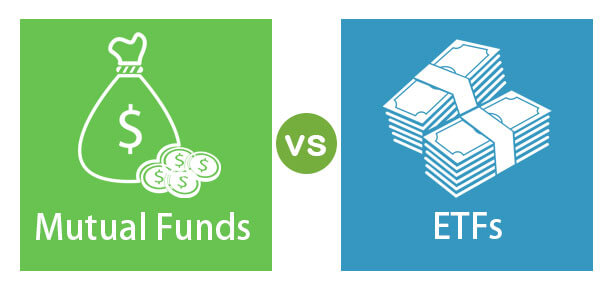| etf | 33,100 |
| exchange traded fund | 33,100 |
| invest in etf | 1,000 |
What are ETFs?
Exchange traded fund (ETFs) are passive mutual funds, which track a particular market index like Sensex, Nifty, BSE – 100, Nifty – 100 etc. ETFs invest in a basket of stocks which replicate the index constituents. The weight of an individual security in an ETF portfolio mirrors the weight of the security in the index. There are ETFs of different asset classes e.g. equity, fixed income, commodities (gold, silver) etc. ETFs do not aim to beat their respective benchmark indices; their aim is to track the index.
What are actively managed mutual funds?
Mutual fund invest in different types of capital market securities according to the mandate of the scheme. Equity mutual fund schemes invest in equities and equity related securities. Debt mutual funds invest in debt and money market securities. Hybrid mutual funds invest in both equity and debt securities. Every mutual fund scheme has a benchmark index, against which its performance can be measured. Mutual funds are managed by professional fund managers whose aim is to beat the market benchmark index over sufficiently long investment horizons.
Mutual fund and ETF similarities
- Both are managed by asset management companies
- Both invest in diversified portfolio of securities
- Both offer diversification benefits
- Both have the same tax treatment depending on the type of fund
Mutual Fund and ETF differences
| ETFs | Mutual Funds |
| You need to have demat and trading accounts with stock brokers to invest in ETFs | You do not need demat account; anyone can invest (if you are mutual fund KYC compliant). |
| After NFO subscription period, ETFs can be bought or sold only on stock exchanges, unless transactions take place in lot sizes (creation units) as specified by the AMC. If you transacting in lot sizes, you can buy / sell with the AMC. ETF lot sizes are usually quite large compared to average transaction size of retail investors. | For open ended mutual funds, you can invest or redeem with the AMC. You can invest any amount (subject to minimum amounts for lump sum and additional investments specified in the SID). You can redeem any amount / units, at any time with the AMC. |
| You cannot invest through SIP | You can invest through SIP |
| ETF transactions take place on real time buy / sell prices in stock exchanges just like stocks. Buy / sell prices of ETFs can differ from the NAVs | Mutual fund investment transactions are based on end of day NAVs |
| ETF costs (TERs) are lower than actively managed mutual funds. However, you also have to incur costs like brokerage, STT, GST, stamp duty etc. | TERs (costs) of actively managed mutual fund schemes are much higher than ETFs |
| Dividends paid by stocks in an ETF are credited to your bank account. You can decide whether to re-invest it or not. | Mutual funds have growth or IDCW (dividend) option. In growth option profits are re-invested in the fund. In IDCW option, it will be credited to your bank account, at the discretion of the AMC |
| Exchange traded fund aim to track the benchmark index | Actively managed mutual funds aim to beat the market index |













